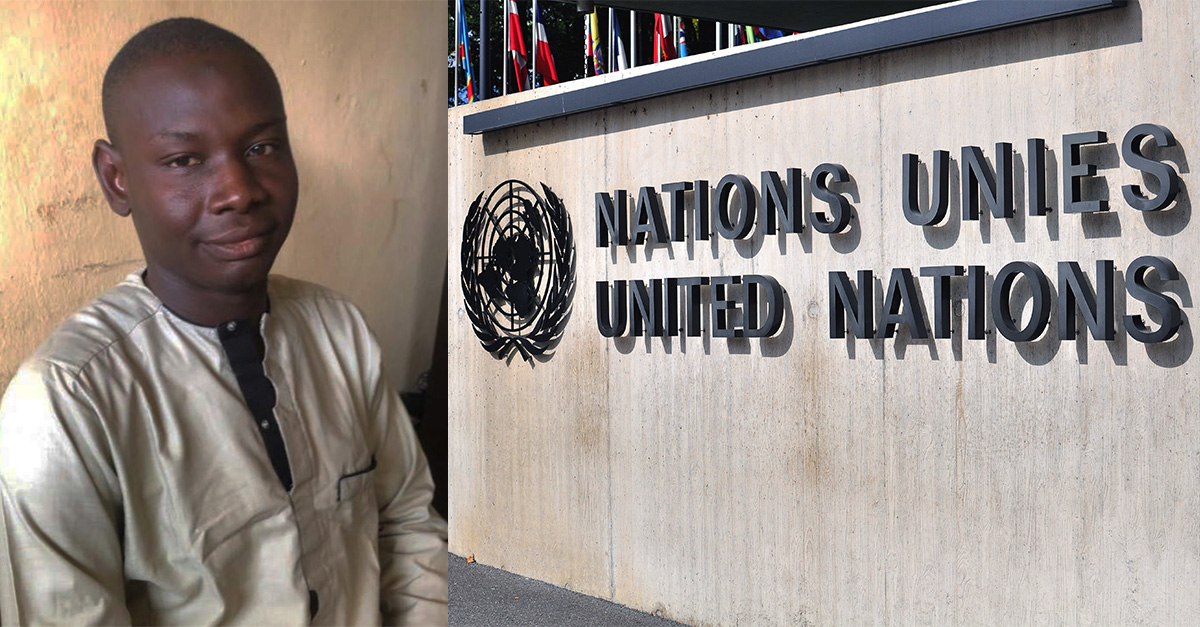


Get a free copy of Parental Rights & Education when you subscribe to our newsletter!

Nigeria has been enabling Muslim extremism for years by turning a blind eye to the ongoing persecution of Christians and other religious minorities. But the U.S., not the U.N., should be the one leading the way in standing up for religious freedom in Nigeria.
United Nations experts are urging Nigeria to release a Sufi musician charged with allegedly violating blasphemy laws and to stop imposing the death sentence for future blasphemy violations.
In 2020, Nigerian Yahaya Sharif-Aminu, who was 22 at the time, was sentenced to death for allegedly sharing song lyrics he wrote that “blasphemed the prophet Mohammed.” Sharif-Aminu was convicted before a Sharia court in Kano State.
In addition to secular courts, 12 out of 36 Nigerian states have Sharia courts that exclusively try alleged violations of Islamic law. Depending on what alleged violation is involved, the accused can face cruel punishments, including flogging, amputation of limbs, or death sentences.
Sharif-Aminu was convicted even though he had no legal representation.
Since then with the help of Alliance Defending Freedom International, he has appealed to the Nigerian Supreme Court where he is challenging the constitutionality of blasphemy laws. A court of appeal has already removed his death sentence.
Last week, U.N. Special Rapporteurs urged the court to end the internationally condemned practice of death penalties for blasphemy law convictions.
Special Rapporteurs are part of Special Procedures, a body of independent human rights experts appointed by the U.N. Human Rights Council.
“Although his death sentence was quashed by a court of appeal, we remain deeply concerned that Mr. Sharif-Aminu’s case will be re-prosecuted based on the same legal framework, the Kano State Sharia Penal Code Law, with serious risks that the death sentence will be confirmed,” they stated.
They urged the Nigerian government to reserve death sentences for the most serious crimes.
“We note that the Supreme Court of Nigeria has been seized of the matter but remain deeply concerned that Mr. Sharif-Aminu has been in prison for too long for exercising his human rights,” they continued. “We urge the Supreme Court to consider Mr. Sharif-Aminu’s case as a priority, and to urgently adopt a decision taking into consideration Nigeria’s obligations under international human rights law.”
Sean Nelson, legal counsel for ADF International, thanked the U.N. Special Rapporteurs, saying,
“We are grateful to advocates of religious freedom, freedom of expression, and other important human rights across the globe, including at the United Nations, who are speaking out on Yahaya’s behalf. While the international community demands action, Yahaya continues to languish in prison awaiting a hearing at the Supreme Court of Nigeria.”
He continued,
“Now is the time for Nigerian officials to heed the urgings of world leaders, immediately release Yahaya Sharif-Aminu, and get rid of these egregious blasphemy laws that violate the basic human rights of their citizens. No person should be punished, prosecuted, or threatened with death for their peaceful expression and their faith. The time to act is now.”
Ironically, despite Nigeria’s prosecution of blasphemy laws and the ongoing and intense persecution of Christians and other religious minority groups by Boko Haram and Fulani tribesmen, the U.S. State Department has continually refused to place Nigeria on its list of the world’s worst religious freedom violators. This has baffled religious freedom experts as Nigerian Christians have implored the global community to recognize the religiously motivated violence, including kidnappings, the burning of homes and churches, and the murder of pastors, children, and entire villages.
Kola Alapinni, international human rights lawyer and legal counsel for Yahaya Sharif-Aminu, stated,
“As long as religious minorities are imprisoned for mere peaceful expression, religious freedom is imperiled in Nigeria. I am thankful to the UN experts for speaking out on Yahaya’s behalf, and I implore all who are able to keep up the global pressure for advancing our human rights in Nigeria. It is my hope that in a positive step forward, the Supreme Court will hear Yahaya’s case and eliminate these oppressive blasphemy laws that hinder our rights to speak and live freely.”

Before Sharif-Aminu’s conviction, Muslim mobs had already burned his family home. Supposedly his song elevated another imam over Mohammed.
The leader of the protestors demanding action against Sharif-Aminu praised the decision to give him the death penalty for words. “When I heard about the judgment I was so happy because it showed our protest wasn’t in vain,” he said.
“This [judgement] will serve as a deterrent to others who feel they could insult our religion or prophet and go scot-free.”
By allowing Sharia courts in its nation and allowing mobs of religious fanatics to operate freely, the Nigerian government has given them permission to freely harm those with whom they disagree.
Meanwhile, the U.S. and so-called policy experts blame the violence on climate change.
Just as those being persecuted in Nigeria have told the world, it’s not climate change, it’s Islamic radicals. Whether it’s Christians or Muslims who believe differently, like Sharif-Aminu, the horrors going on in Nigeria are because of Islamic extremism, full stop.
Nigeria must show strength. It must show that it will not allow Islamic groups to control the nation, to arrest its fellow Nigerians for words, or to murder those with whom they disagree.
And the United States, not the U.N., should be leading the way by standing up and more urgently and more intensely advocating for the right of all to enjoy religious freedom and free speech without the threat — or reality — of persecution.
If you like this article and other content that helps you apply a biblical worldview to today’s politics and culture, consider making a donation here.

